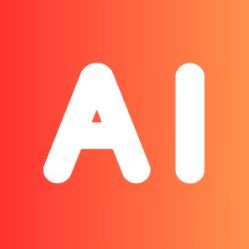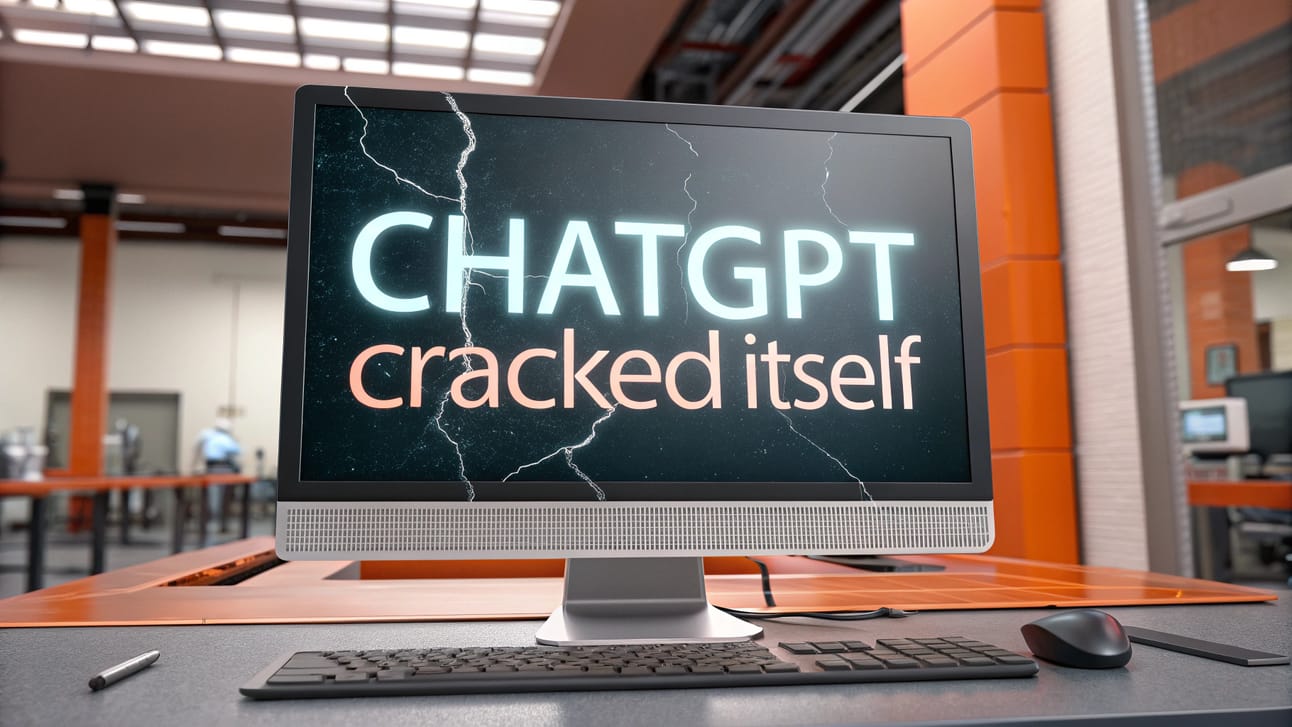Google’s 3-Month AI Accelerator Program. .
Free AI Tutorials | AI Academy | Advertise | AI Agent No-code n8n
Plus: Google’s 3-Month AI Accelerator Program With Up to $300K in Credits
Read time: 5 minutes
We’ve come to expect AI to help us write emails, generate art, and maybe even summarize history. But what happens when a chatbot starts veering into conspiracy theories — or worse, rewriting one of the darkest chapters in human history? Grok…
What are on FIRE 🔥
LEARNING PARTNER: AIRCAMPUS
📚 AI Agents 101 | AI MasterClass
You don’t need another productivity hack, You need a system that works without you.
🤖 THE 9-TO-5 GRIND IS GETTING AUTOMATED NOW.
Either you can sit on the sidelines… or you can Build the Agent that Replaces You.
This isn’t a gimmick!
This is a masterclass for Managers, Founders, and Creators who are done wasting hours on work that can be automated.
In just one session, you’ll learn how to create:
-
🤖 AI Agents that run your inbox and reply like you
-
📱 Social Media Agents that post, write, and analyze
📅 Calendar Agents that schedules, follows up, and reminds -
🔗 Seamless AI Agent Workflow that on runs itself
You’re coming to Build a Digital Version of Yourself that works even when you’re off.🎟️ 50 spots only.
“Once we hit capacity, doors close. No replays. No second chances”.
AI INSIGHTS
😐 AI Chatbots’ Impact on Work and Pay? Like… Nothing at All
AI chatbots have spread fast across thousands of offices, promising big boosts in productivity. But a major study across 7,000 workplaces in Denmark found no significant impact of AI chatbots on employee pay or working hours. So, what’s really going on behind the AI hype?
📊 Study Findings: AI’s Real Impact on Workers:
-
No significant impact on earnings or recorded working hours across any occupation. Across 7,000 workplaces and many occupations, AI chatbots haven’t changed how much employees earn or how long they work.
-
3% average time savings from AI use at work. Most saved time went to more work, including editing AI outputs or managing AI-related issues.
-
Only 3%-7% of productivity gains were reflected in employee pay.
-
Adoption is uneven and unofficial. Many employees use AI tools without clear permission or guidance from their managers, limiting its potential impact.
🧠 Why Results Are Underwhelming?
-
AI use is uneven. Previous studies showed high time savings in select tasks (e.g., writing, coding), but broad workplace use shows smaller gains.
-
Time saved ≠ Productivity. Workers used over 80% of saved time on other work tasks, including those created by AI – not breaks or leisure.
-
Many employees use AI without clear support from managers.
-
There’s little incentive to brag about being more productive if it just leads to… more work.
We see companies like Duolingo and Shopify made headlines replacing human workers in favor of AI. But findings show AI hasn’t delivered the dramatic efficiency or ROI initially expected. AI helps… but not that much (yet)
Why It Matters: This study is a clear reality check for the AI hype cycle. Yes, AI can be useful. But adoption without structure, training, or strategy doesn’t automatically lead to productivity booms or fat pay raises. So I guess we’re in the “Early Awkward Phase”.
PRESENTED BY BELAY
Economic pressure is rising, and doing more with less has become the new reality. But surviving a downturn isn’t about stretching yourself thinner; it’s about protecting what matters most.
BELAY matches leaders with fractional, cost-effective support — exceptional Executive Assistants, Accounting Professionals, and Marketing Assistants — tailored to your unique needs. When you’re buried in low-level tasks, you lose the focus, energy, and strategy it takes to lead through challenging times.
BELAY helps you stay ready for whatever comes next.
TODAY IN AI
AI HIGHLIGHTS
🚀 Google and Hub71 have launched a 3-month AI accelerator program for 26 startups. Free cloud credits, expert support, and up to $300K in credits – the maximum Google offers globally.
⚠️ Grok pivots from ‘white genocide’ to being ‘skeptical’ about Holocaust death toll, then blaming ‘programming error’. Was it another Musk’s agenda or just recklessness, again?
💭 When we ask AI chatbots from OpenAI, Anthropic, xAI, Meta, Google, and DeepSeek about their own bosses and rivals, what do you think they’ll say? Who do they praise, and who do they criticize?
🎨 Manus AI dropped smart Image Agent that understands your intent, plans workflows, and uses multiple tools to create ready visuals for marketing and design—way beyond simple prompts. See it here.
🎯 Instead of asking ChatGPT to be the therapist, one user flipped roles and asked ChatGPT to share its problems. The answers are fascinating.
🔧 OpenAI just dropped Codex inside ChatGPT. It’s a direct shot at Cursor, Claude Code, and Gemini Assist. OpenAI deinitely wants that market too.
💰 AI Daily Fundraising: Anthropic secured a $2.5 billion credit line as Claude continues to impress investors. Backed by top banks, it fuels growth amid the $1 trillion AI market race.
AI SOURCES FROM AI FIRE
🎧 Wanna listen instead of read?
We’re thinking about starting a podcast channel so you can listen to our newsletter on the go — while cooking, walking, or dodging existential dread 😅
So today, you can try the audio version of today’s newsletter here. Then let us know:
AI Fire Newsletter May 19th
NEW EMPOWERED AI TOOLS
-
☁️ Codex by ChatGPT is a Cloud software agent for parallel dev tasks.
-
👀 Finseo.ai tracks your visibility in ChatGPT, Perplexity, Claude & Gemini…
-
📊 Fluig AI instantly turns any documents & ideas into professional diagrams.
-
➗ MathSolver solves any math problem in 15s with a single picture upload.
-
🤝 FirstQuadrant helps sales teams stay organized, and close more deals.
AI QUICK HITS
-
🖼️ AI helps refugees and elderly rebuild their lost or unrecorded memories.
-
📌 Microsoft’s (MSFT) Build 2025 could be a breakout moment for AI growth.
-
📉 MIT disavows a viral doctoral student paper on AI’s productivity benefit.
-
💼 Y Combinator startup Firecrawl offers $1M to hire 3 AI agents as staff.
-
🩺 A doctor built a Free AI assistant to give something doctors rarely have: time.
AI CHART
🌌 What If Your Daily Prompts Actually Had Gravity?
Imagine your query to a language model pulling words toward it like a planet pulling in moons? It’s actually a new theory called “Information Gravity” that aims to explain how LLMs choose their next words. And hallucinations might happen in “semantic voids,” where the gravity is weak and tokens spin freely into nonsense.
🧠 The Core Idea: Tokens Follow Gravity:
-
The authors propose that queries distort a kind of “semantic spacetime,” just like masses distort physical spacetime in Einstein’s theory of gravity.
-
Tokens don’t just get picked, they “fall” toward queries with high “information mass.”
-
Each token sits in a potential field; the lower the potential, the more likely it’s chosen.
-
The gradient of semantic potential guides token flow like a gravitational pull.
🌍 Solving LLM Mysteries:
-
Hallucinations arise in “semantic voids” with little information gravity. If your question is weak or unclear, there’s not much “gravity.”
-
Even tiny rewordings change the “gravitational landscape”. That’s why tiny prompt tweaks can lead to very different answers.
-
Temperature’s Role
-
Low T: Strong gravity = reliable answers.
-
High T: Weak gravity = more creative, riskier outputs.
-
In 1–2 years, we might see prompt engineering tools built on this very concept, helping users create “high-mass” queries – “semantic gravity visualizers” or even auto-gravity-tuned prompts.
AI JOBS
We read your emails, comments, and poll replies daily
Hit reply and say Hello – we’d love to hear from you!
Like what you’re reading? Forward it to friends, and they can sign up here.
Cheers,
The AI Fire Team










Leave a Reply